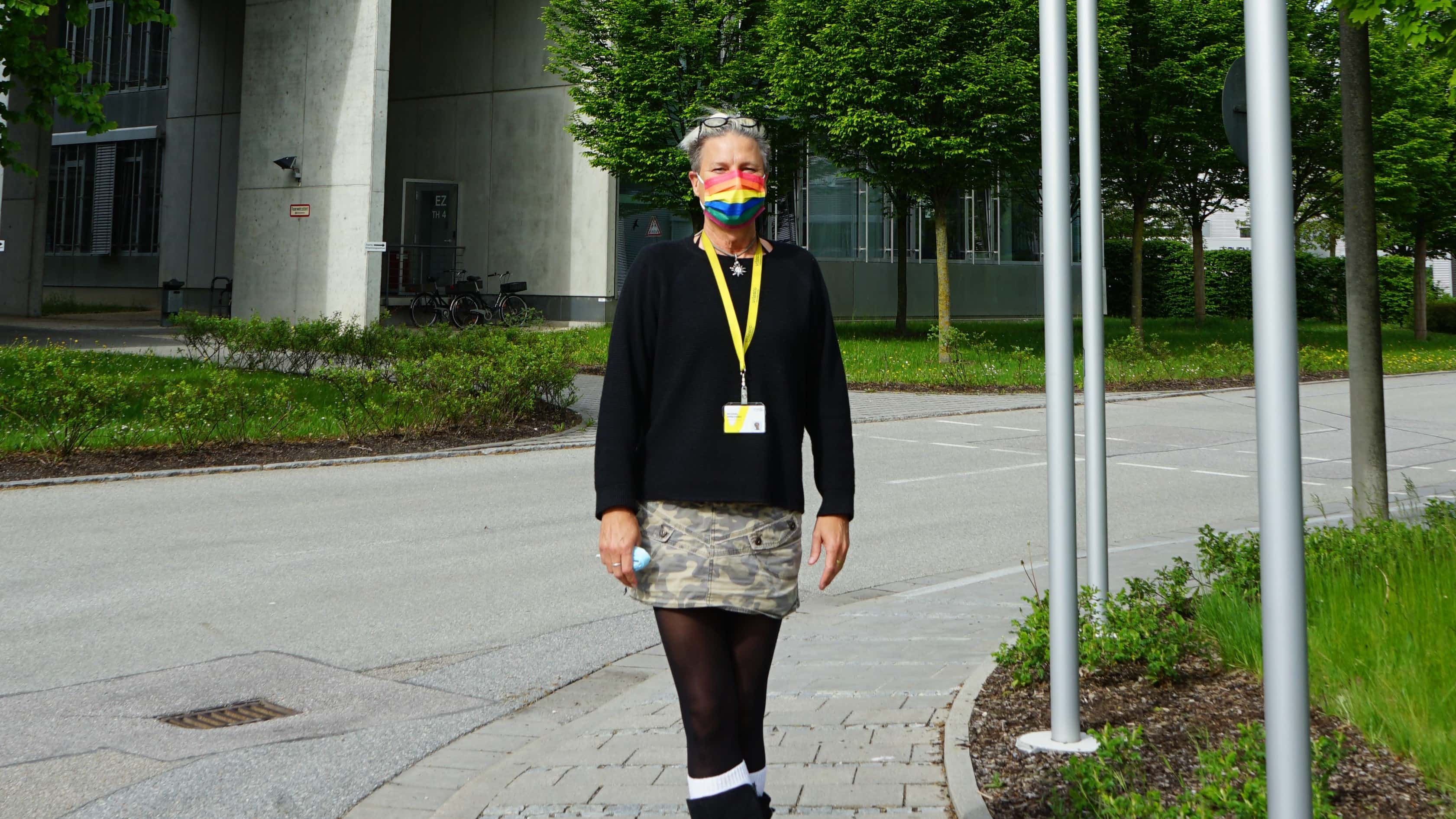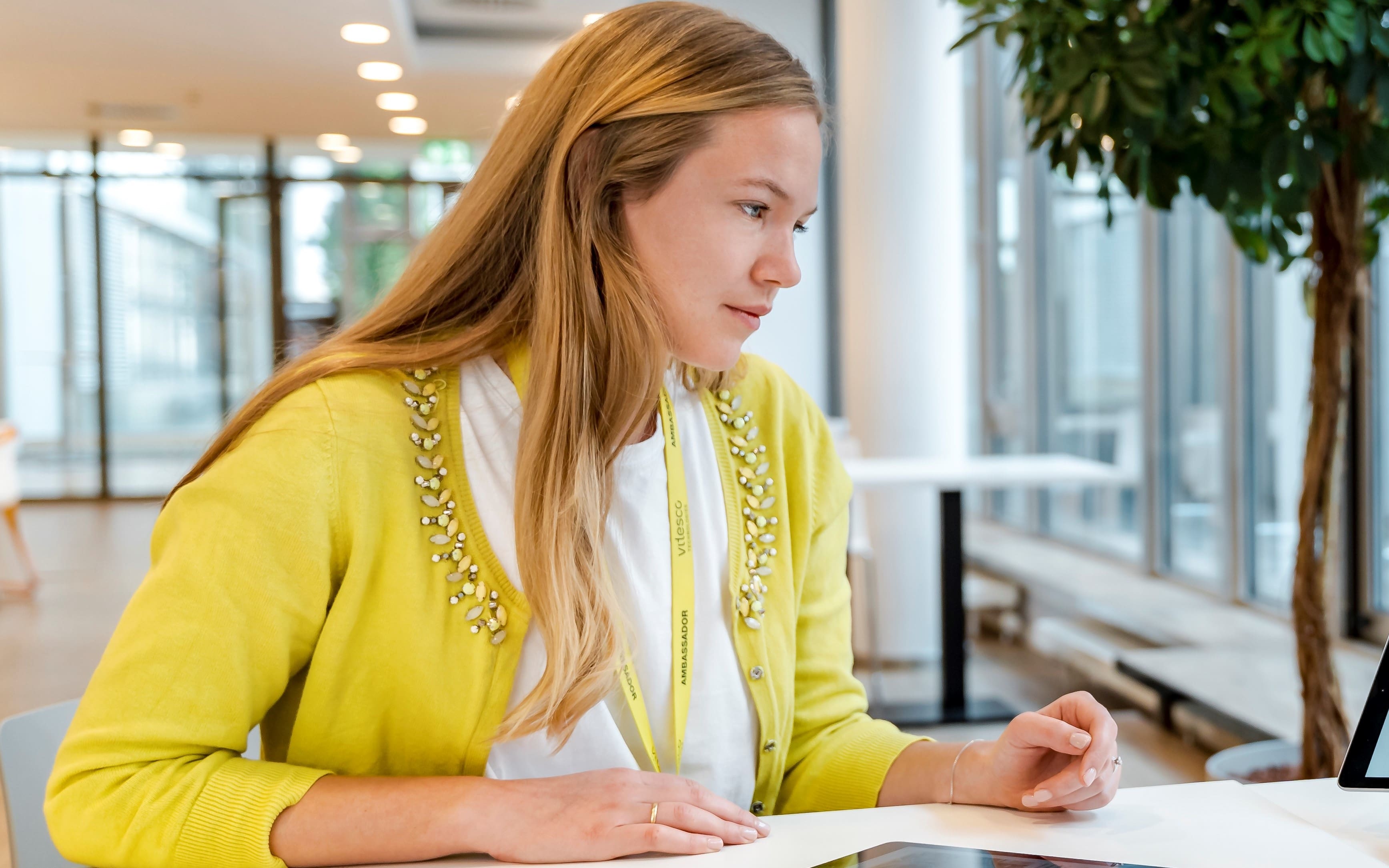INSIGHTS INTO OUR HEALTH PROGRAM
Over the past few years, more and more companies have realized they need to protect their employee‘s mental health! Shaoqian Zhang, global head of Safety ad Health, is truly passionate about mental health, safety and resilience and explains why resilience is a universally important skill today.
How does Vitesco Technologies support employees in maintaining good mental health?
We have many initiatives to support mental wellbeing on both the group, country, and the local level ranging from reactive to proactive.
The most reactive would be the EAP (Employee Assistance Program) service. This is a tool that can help colleagues if they have personal or work-related problems, so they can call the helpline which is provided by a third party and is completely confidential. Besides, this service is not limited to mental health problems, but can also be used if someone is going through a difficult time, such as a divorce or financial problems.
On the one hand, preventative measures such as health checks are offered. On the other hand, we also have local health screening initiatives that may vary from country to country. We also provide The Healthy Leadership Program to our leaders, which trains them to build a healthy mindset for themselves as well as establishing a healthy culture within their team. However, these are just the major programs, as many locations organize yoga classes as well as meditation apps – to name a few examples.
So, there are programs for all employees on all levels?
Yes, and what’s more, it is very important for us to offer support to all employees throughout their entire employment. In fact, even when people decide to leave the company, some of our offers remain available to them for a month after leaving.
One of the most recent initiatives is the resilientMIND program. What is resilience and why is it important?
Think of a spring. If you compress it, it will bounce back. In contrast, if you press on a chocolate bar, it won’t. Resilience is the ability to bounce back after living through a stressful situation or experiencing personal or professional set-back. Today we must deal with a lot at work - like changing work environments and requirements. On top of that, we live in a world that seems to be in constant crisis with the pandemic, war, and inflation. It is vital that we have coping mechanisms to deal with these internal and external stressors. Why? Many experts and companies are starting to recognize that next to material and human capital, securing their psychological capital is just as significant. More importantly, it is critical for our employees to have a good work life balance for long-term success. Resilience is a transferable skill that they can use in their personal lives as well.
And that’s what participants learn in the resilientMIND?
Yes, the resilientMIND program teaches us exactly these skills. Over the course of four months, participants complete various modules to develop individual competencies and share their experience in focus groups. These modules are then followed by another set to build up team competencies which are again deepened in focus group activities. In this, physiological, mental, emotional, and social factors are considered. In the end, there is a four-week sprint session in which a moderator helps the groups to exercise their newly acquired skills every day for thirty minutes. This not only helps to anchor them, but it also makes it easy for the participants to form a new habit.
HOW YOU CAN BECOME MORE RESILIENT – TIPS BY OUR RESILIENTMIND TRAINERS
Why is mental health important?
A good mental health naturally supports a good quality of life and helps us flourish as humans. It strengthens our ability to focus, to learn, to work with our emotions and to handle stressful periods. All these skills are crucial for how we function at work as well as in our private life. Also, mental health is a prerequisite for successful collaborating. Because solving problems together and supporting each other become harder when we are stressed or struggling with anxiety or depression.
What is a simple exercise I can do every day to strengthen my resilience?
In today’s digitized world, relaxing has become a skill that needs practice.
⚡️Take a good upright but relaxed posture.
⚡️Allow your outbreath to lengthen. Don’t force it, but let it fade out.
⚡️See if you can lengthen the outbreath to the count of seven.
⚡️Pause for one.
⚡️Breathe into the count of four.
⚡️Pause for one.
⚡️Do this for about two minutes.
What are your three top tips for maintaining mental health?
> Ensure that you sleep well. Having a good sleep hygiene – including evening rituals and reducing digital stimulation after 8 pm – can be very helpful.
> Ensure that you move regularly. Movement has a positive impact on your mental wellbeing and your cognitive performance.
> Practice mindfulness. It helps us feel connected to our bodies and trains our cognition, as well as our ability to relax, to regulate emotions and to appreciate our lives.
If you curious to find out more about our benefits Click here
-

MOVE? YES, CROSS MOVE PLEASE!
MOVE? YES, CROSS MOVE PLEASE!
Last year, our colleague Geoffrey decided to do a cross-functional move within the company. He had the opportunity to learn new skills and apply his knowledge to a different field.
Read his story here.
-

COULD I BE RESPECTED FOR BEING MYSELF?
COULD I BE RESPECTED FOR BEING MYSELF?
As a member of the LGBTQ+ community, our colleague Michael shares details about his personal journey of coming out at work.
Find out more about his experience here.
-

REINVENTING MY CAREER
REINVENTING MY CAREER
Our colleague Theresa decided to take a brave step and change her career path from HR to IT. She is convinced that nothing can push the learning curve more than doing a cross-functional move.
Read her story here.


